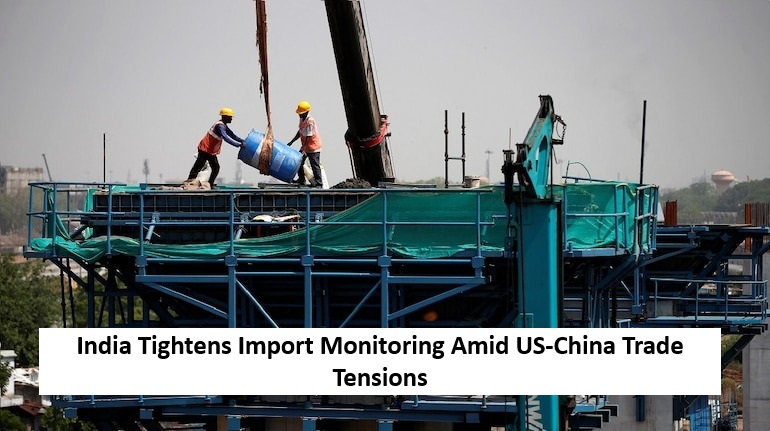
Amid escalating trade tensions between the US and China, India has ramped up its scrutiny of incoming shipments, particularly from China. This action follows US President Donald Trump’s announcement of new reciprocal tariffs on April 2, which target major global trading partners.
The Department of Commerce, led by Secretary Sunil Barthwal, has been holding internal meetings to develop a strategic approach. A senior official stated that the department has been monitoring the import situation closely, even before the US tariffs were officially declared.
US Tariffs and China's Countermeasures
The new US tariff structure imposes additional duties ranging from 10% to 50%. A baseline 10% duty came into effect on April 5, with further country-specific tariffs set to apply from April 9. For Chinese imports, the total tariff now reaches 54% due to a 34% hike.
In response, China retaliated on April 4 with similar measures. These include 34% tariffs on US goods, export restrictions on rare earth materials, and sanctions on approximately 30 US defense-related entities.
Beijing criticized the US for engaging in unilateral actions, while Trump claimed on social media that China had “panicked.”
India’s Concerns Over Trade Rerouting
With the US-China trade war deepening, experts warn that Chinese exporters may redirect shipments to markets like India, raising the risk of dumping. As a preventive measure, the Indian government is being advised to take a more proactive stance.
India’s Directorate General of Trade Remedies (DGTR) is responsible for enforcing anti-dumping rules and has been recognized for its effectiveness in handling such situations.
Trade Imbalance with China Widening
Data from India’s commerce department shows a growing trade gap with China. Imports from China increased by 10.4% to $103.7 billion between April and February of FY 2024–25. In contrast, India’s exports to China declined by 15.7% to $12.7 billion during the same period.
This imbalance further reinforces the need for strict monitoring and quick policy responses to evolving global trade dynamics.
Read More: They Fired a Gunshot, We Are Bleeding CJI’s Emotional Outburst Over NCERT Textbook

 Share
Share



